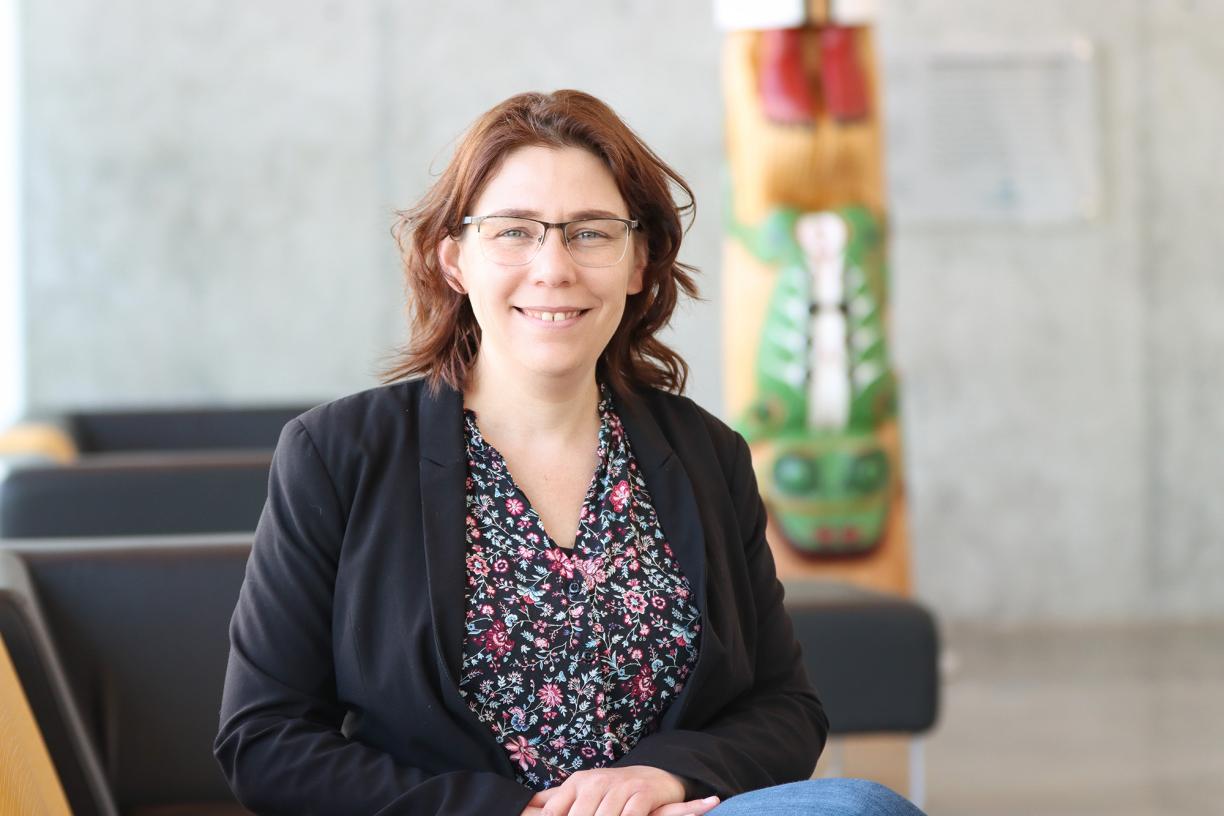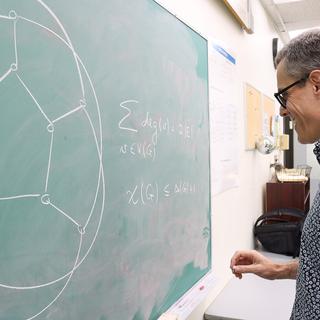Dr. Melissa Huggan, a VIU Math Professor, is using pursuit-evasion game theory to model adversarial situations on networks. Vancouver Island University photo
Dr. Melissa Huggan received $147,500 in NSERC grants to pursue her research.
Dr. Melissa Huggan, a VIU Math Professor, is studying two-player adversarial games that can be used to model real-life problems.
Huggan’s research is in the field of graph theory, which is the study of abstract networks. Examples of networks include webpages with their links, social networks, predator-prey networks and protein interaction networks. Graph theory has applications in ranking, vehicle routing, scheduling and DNA sequencing.
Huggan’s main focus within graph theory is pursuit-evasion games on networks. Examples of networks are maps, where locations are nodes and roads are connections between the nodes or the internet, where nodes are webpages and the links between webpages are the connections between the nodes.
One specific area Huggan is investigating is the hypothetical scenario of a person lost in a forest. The missing person calls for help but does not know where they are. Search and rescue crews rely on cellphone pings to determine their location, but not all locations pick up the signal at the same time. The crew needs to choose a certain number of towers to use to receive information about distances from the missing person. Over time the crew members can use this information to locate the missing person. Further potential applications of this foundational research include containing the spread of misinformation or a virus on a network.
Huggan received a Natural Sciences and Engineering Research Council of Canada (NSERC) Discovery Grant of $135,000 distributed over five years to pursue her research. She also received a Discovery Launch Supplement, a grant for early career researchers, of $12,500.
“It feels amazing to receive a Discovery Grant from NSERC,” said Huggan. “I’m grateful for the support to pursue my research interests and create research opportunities for students.”
Huggan said learning mathematics in the classroom is different than conducting research. She said it is often through a summer research position that students experience first-hand the vibrancy of mathematics as a discipline.
“Learning mathematics in a classroom has a clear question with established methods for solving the problem. Research requires creative thinking, innovative ideas and well-thought-out questions to build on existing work or introduce new ideas and knowledge to the field,” said Huggan. “When an undergraduate research student gets their first ‘aha!’ moment, it is very exciting. They discover something previously unknown, through grit and determination, to apply the knowledge they learned from classes, in combination with thinking beyond the textbook.”
-30-
Media Contact:
Rachel Stern, Communications Officer, Vancouver Island University
C: 250.618.0373l E: Rachel.Stern@viu.ca | T: @VIUNews



